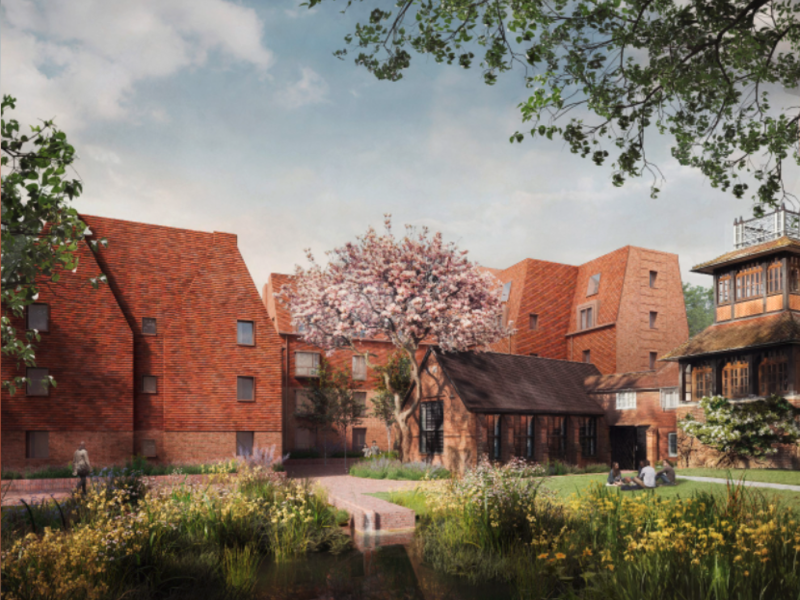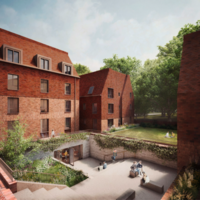ST EDMUND HALL LAUNCHES £50m CAMPAIGN WITH A FOCUS ON SUSTAINABILITY

ST EDMUND HALL LAUNCHES £50m CAMPAIGN WITH A FOCUS ON SUSTAINABILITY
Looking to the future with a new, progressive campaign
Published: 20 June 2022
Share this article
Launched on April 27 by the Chancellor of the University, St Edmund Hall’s HALLmarks campaign aims to raise £50 million over the next five years. The broad objectives of the campaign are to make the college more sustainable, more diverse and more accessible.

Under the leadership of the Principal, Professor Katherine J. Willis CBE, who has recently been appointed to the House of Lords as a non-party-political life peer in recognition for her contribution to biodiversity science, the college has made environmental sustainability a priority, reflecting student interests as well as central University ambitions.
The campaign is broken down into physical, intellectual, pastoral and cultural goals and underpins St Edmund Hall’s commitment to being recognised as one of the greenest and most environmentally sustainable colleges in Oxford.
The flagship project for the campaign is the transformation of existing student accommodation at 17 and 19 Norham Gardens, into a mixture of new build and refurbished accommodation and communal student spaces which will be built to the highest sustainability standards and will be Passivhaus accredited. Passivhaus certification is the gold-standard sustainability threshold for new buildings. Through insulation, airtightness and the careful placement of windows, the building passively maintains a comfortable internal environment throughout the year. Renewable energy will be generated through high-efficiency solar roof panels and air-source heat pumps will provide warm water and heating. The refurbished existing buildings will be retrofitted with increased insulation and new windows to drastically reduce energy consumption. Overall, the buildings will require very little energy, helping to minimise the college’s carbon footprint.

On completion it will house 126 students, allowing all St Edmund Hall undergraduate students to live in college housing for all three years for the first time. Architects Wright & Wright, who have earned a name for their environmentally sensitive work at other Oxford colleges including Magdalen and St John’s, are aiming to complete the building by Autumn 2025.
Norham Gardens will also be used as an accommodation venue for external events, including ambitions to establish a symposium to advance collective, societal understanding on key issues and knowledge gaps around ESG (Environmental, Social and Governance) measurement, its implementation and opportunities. This symposium will be another significant step towards St Edmund Hall not only improving its own sustainable credentials but leading the way in advising how businesses can also be environmentally conscious.
A fundraising target of nearly £20m is earmarked for intellectual goals ranging from endowing the tutorial fellowship and enhancing the 17th century library to supporting the appointment of six early career teaching and research fellowships over the next decade. The campaign also includes pastoral goals to enhance student welfare, and cultural goals around sport, music and the arts.
The Hall is almost a quarter of the way towards its goal and looks forward to engaging with its alumni and wider community on the campaign in the months and years ahead.















